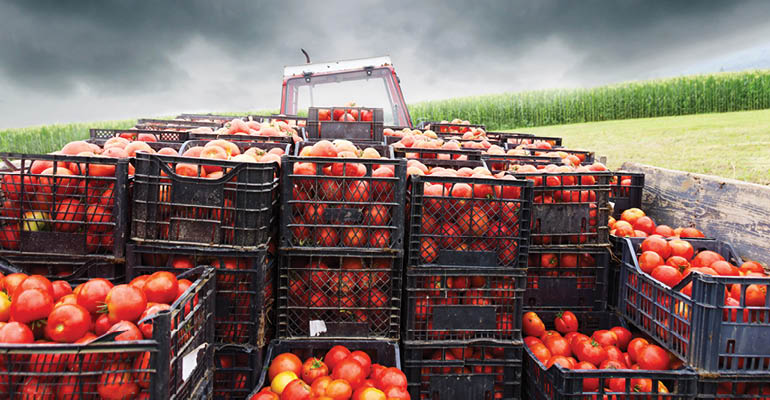The trio will work with research teams across the nation to identify practical opportunities for producers to increase the proportion of crops that are harvested and delivered to the highest value destinations.

The World Wildlife Fund (WWF), the Foundation for Food and Agriculture Research (FFAR) and the Walmart Foundation are joining forces to create a research program to maximize crop utilization and edible food recovery. WWF, with help from FFAR and the Walmart Foundation’s two grants totaling $1.3 million, will work with research teams across the nation to identify practical opportunities for producers to increase the proportion of crops that are harvested and delivered to the highest value destinations.
“Our nation’s producers work hard every harvest to provide food, fuel and fiber to our economy, but they don’t always see the same return on investment,” said Sally Rockey, Ph.D., FFAR executive director, in a statement. “This on-farm research will uncover opportunities for growers to do more with the same resources. I look forward to practical results that will bolster bottom lines for farmers and deliver more nutritious food to dinner tables.”
For the program’s first phase, researchers at University of California, Davis (UC Davis), will work with farmers to gather their input on strategies and opportunities for maximizing crop harvest and use. Their research will primarily focus on crops like leafy greens, peaches and tomatoes. In addition, UC Davis will quantify the environmental impacts from seed to harvest for each of the crops involved in the research.
The first phase will also include assistance from the Global Cold Chain Alliance, which will collect qualitative and quantitative data and organize field studies to estimate on-farm and postharvest losses, and identify the current destinations of produce that never makes it onto a dinner plate or another end use. Initial research will focus on the harvesting of potatoes in Idaho and Eastern Oregon, tomatoes in Florida, romaine lettuce in Arizona and peaches in New Jersey.
“The best way to feed people without putting more stress on our environment is to increase the availability of food that has already been produced,” said Jason Clay, WWF’s senior vice president of markets and food, in a statement. “Each bite that doesn’t reach consumers represents a loss of the natural resources—and money—used to produce it. We’re grateful to the Foundation for Food and Agriculture Research and Walmart Foundation for supporting research that can help promote more efficient use of land, water, energy and natural resources, and deliver more crops to the highest value destinations.”
Researchers will use well-established systems, such as the Community System Assessment Methodology, Life Cycle Assessment and World Resource Institute’s Food Loss and Waste Standard, to ensure consistent reporting across a variety of in-field and supply chain measurement methods, and to facilitate collaborative research and interventions.
“We’re proud to support this research to find ways to deliver more crops from field to plate,” said Eileen Hyde, director for Walmart Giving, in a press release. “This program aligns with the Walmart Foundation’s philanthropic work to address gaps in the food system upstream to prevent food waste.”
About the Author(s)
You May Also Like


